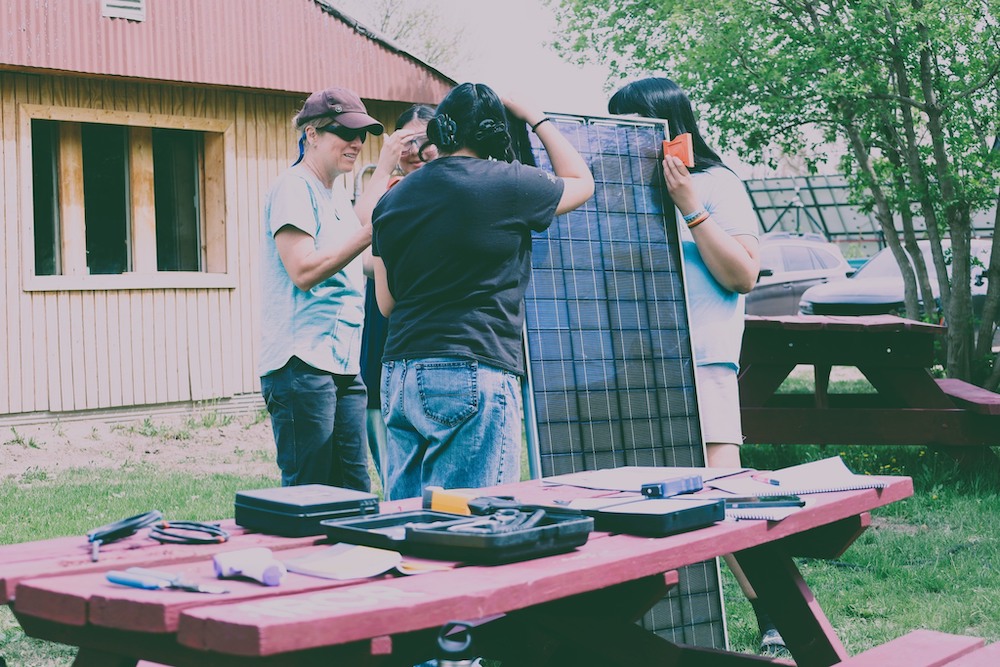
- Details
- By Chez Oxendine
- Energy | Environment
In an industry where women make up just 11% of the workforce and Native women barely register a fraction of that, eight Oglala Lakota women are flipping the switch on renewable energy’s gender gap.
The women completed the second cohort of the Bridging Renewable Industry Divides In Gender Equality (BRIDGE) program Friday through Pine Ridge, S.D.-based energy nonprofit Red Cloud Renewable. The four-week intensive training program included rooftop installations in the rain and complex electrical training designed to help them launch careers in the renewable energy industry.
Through a partnership with Tacoma-based nonprofit Remote Energy, Red Cloud Renewable staffed the program with predominantly female instructors who walked participants through the basics of electrical power, installing solar panels and how to start a career in the renewable energy sector.
“It's been a really good experience. They're so supportive here,” Summer Christensen, a program graduate, told Tribal Business News. “It's really cool having mostly women instructors, and a program that’s meeting our needs.”
The program was engineered to remove specific barriers facing Native women, according to instructor Laura Walters. BRIDGE provided on-campus residencies, food, travel support and childcare stipends for women with children so they could participate without worrying about pressures from home.
The goal was to introduce Native women to a workforce that has often been inaccessible to them, Walters said.
“It's a male-dominated field. Many women, especially Native women, don’t even know this is a career option for them,” Walters said. “If you want to see change in something like this, you have to really develop a program that’s specifically designed to meet those populations.”
Beyond training, the program prepares and connects graduates with employers. Cohort members do mock interviews to help them understand what was ahead in applying for jobs in the sector. Red Cloud Renewable has worked with companies like solar developer Amicus to ensure the training curriculum meets developers’ most immediate needs, Walters said. Amicus has pledged to hire some of the women from the current cohort. Walters noted that “roughly 80 percent” of the women in the first cohort had jobs in the sector in the first four months.
“That’s an extremely good success rate for a program like this,” Walters said. “We’re hoping to keep that momentum going.”
BRIDGE was developed through a collaboration between Red Cloud Renewable and the Department of Energy. The cohort graduated its first group of women in 2024. The next cohort is set to launch in August, Walters said.
However, the future of the program is in question. Shifting federal priorities mean that federal support is no longer available, so Red Cloud Renewables has begun seeking philanthropic support to continue the BRIDGE program beyond 2025, Walters said.
“Since it has been such a successful program, we are wanting to make it a permanent program specifically for Native women,” Walters said. “We’re not going to stop making this happen for them.”
BRIDGE participant Lily DuBray entered the program after returning to Pine Ridge with a bachelor’s degree in sustainability studies. DuBray said she plans to continue her electrical engineering studies, while seeking work in the solar installation sector.
“I want to get on the roof and do more installations, and get into studying the wiring in junction boxes and things like that,” DuBray said. “There’s so many opportunities out there. Now I feel like I’m ready for whatever.”
